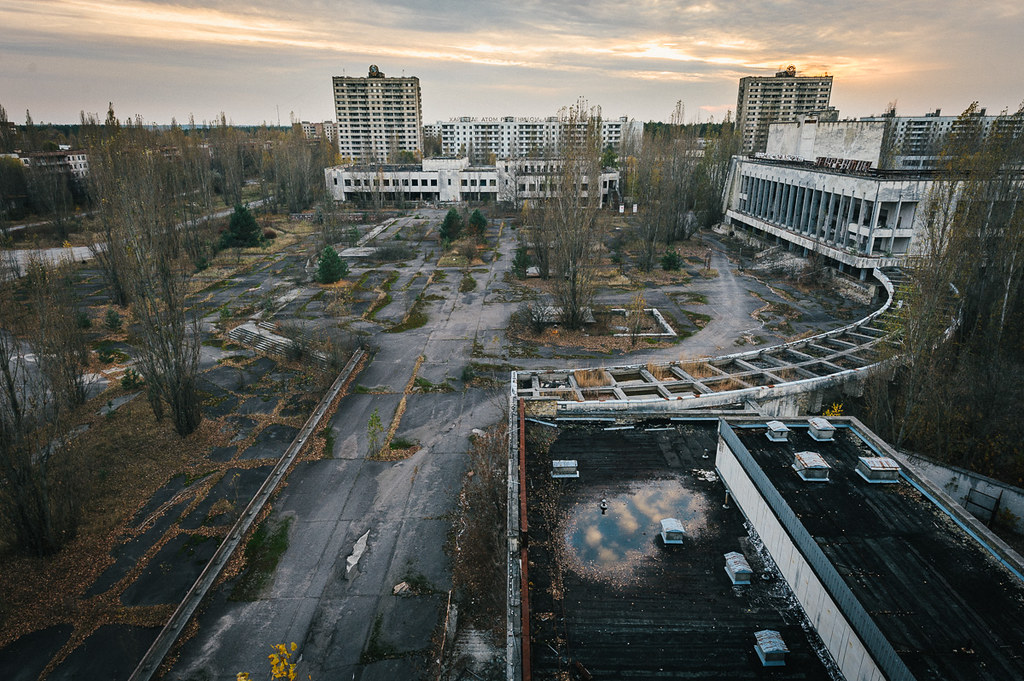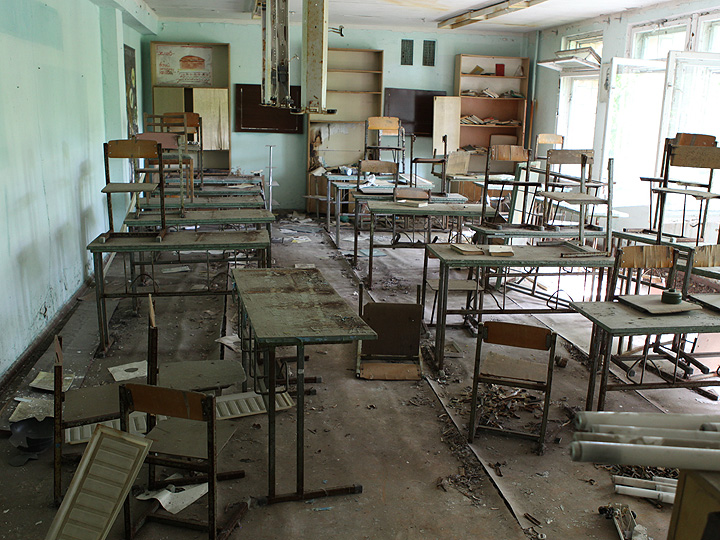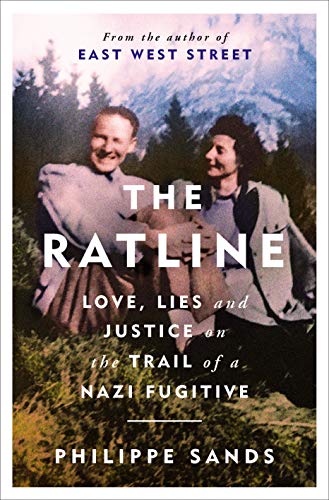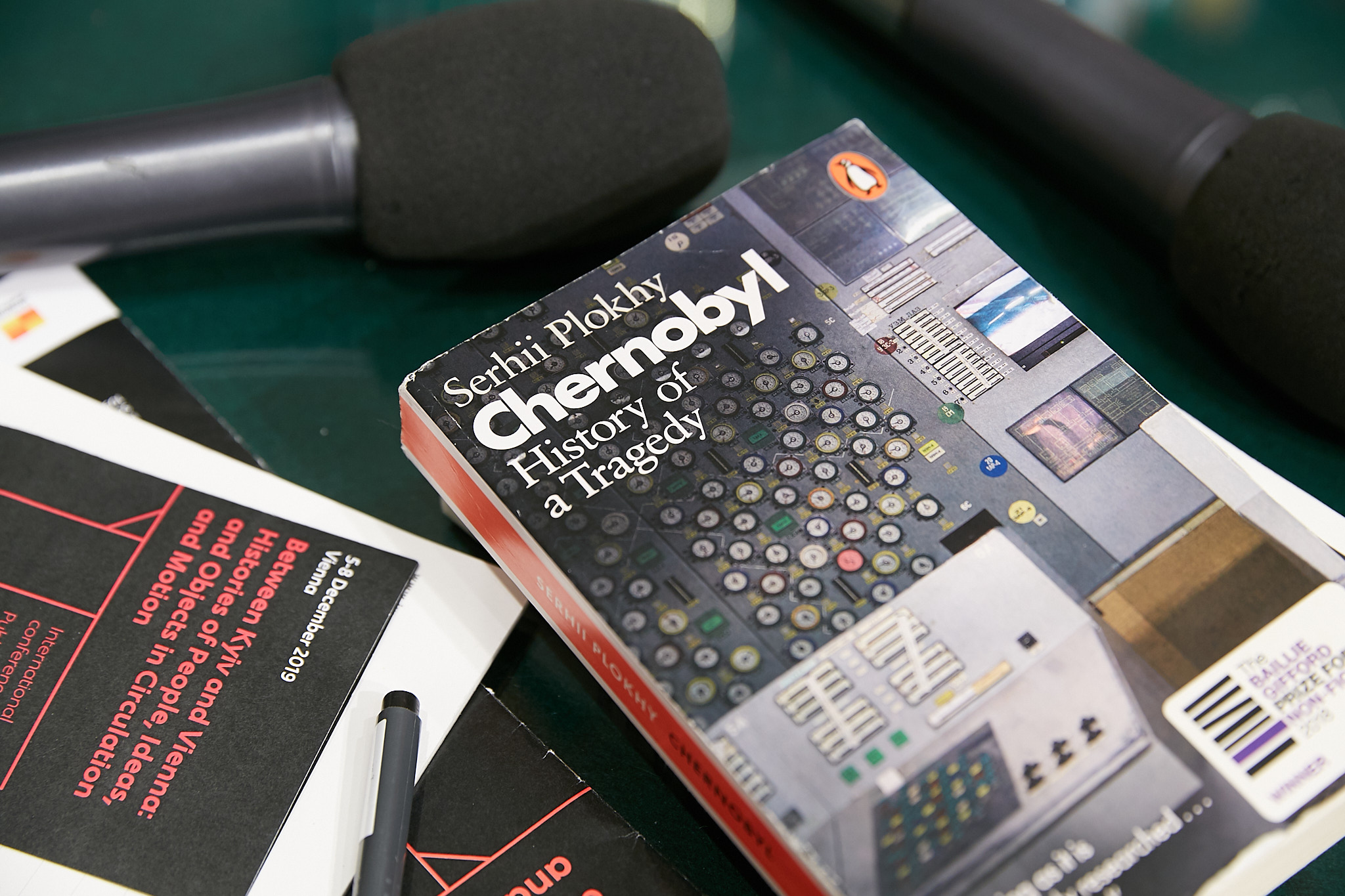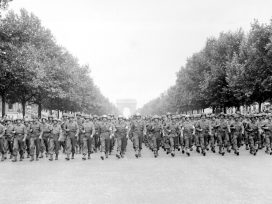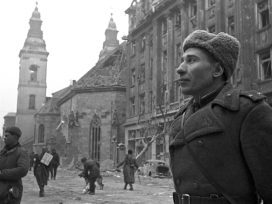Humanity and catastrophe
Authors probing history’s silences for justice’s sake
Guilty secrets hide culpability. And, when the responsibility for crimes against humanity lies shamefully buried, injustice prevails. Authors Serhii Plokhy and Philippe Sands discuss their approaches to uncovering the truth behind Nazi and Soviet war crimes and the Chernobyl disaster.
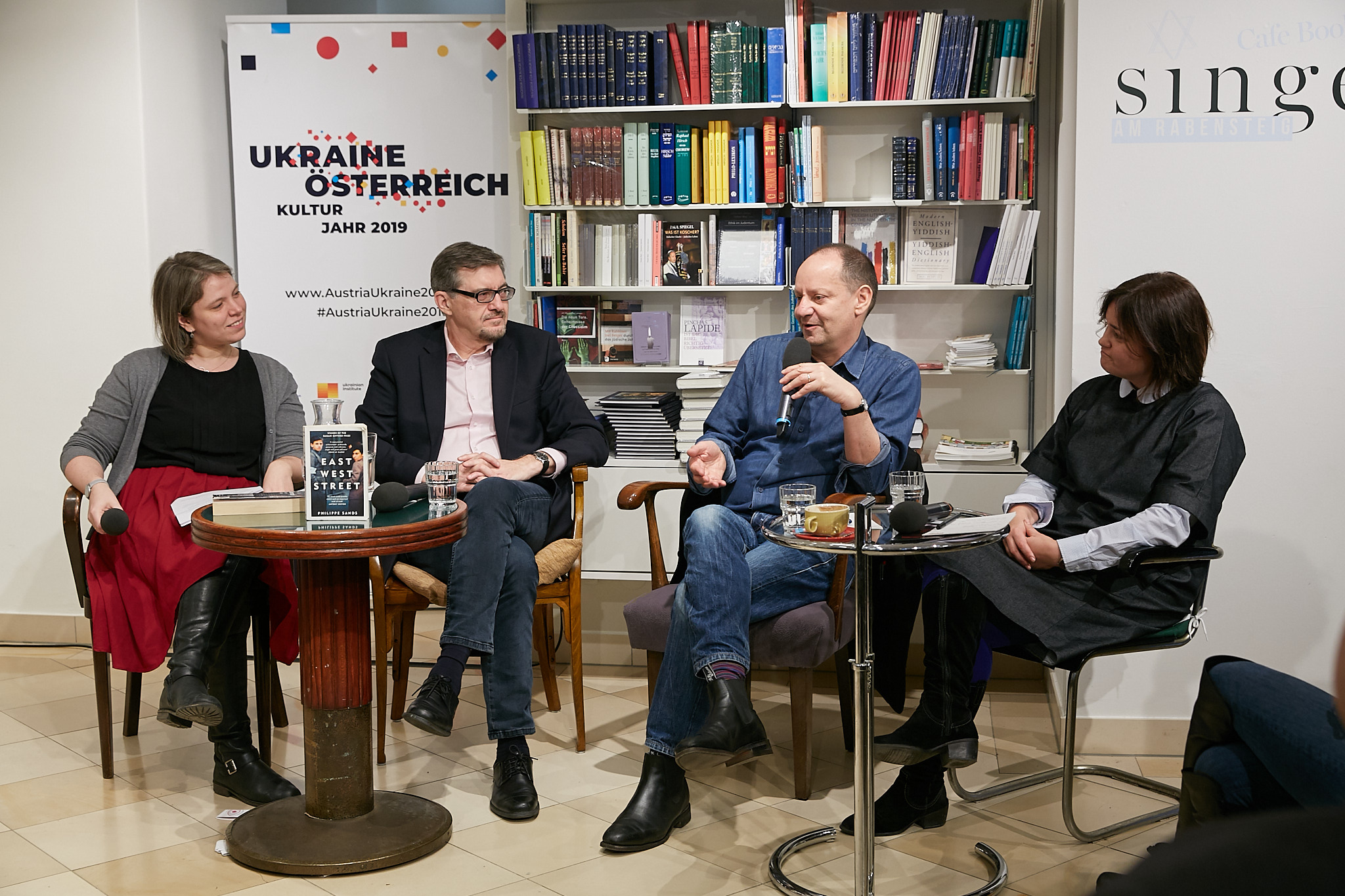
Katherine Younger (Research Director, Ukraine in European Dialogue, IWM), Sergii Polkhii, Philippe Sands and Sofia Dyak (Center for Urban History, Lviv).
The following conversation between Serhii Plokhy and Philippe Sands concluded the Institute for Human Sciences’ international conference Between Kyiv and Vienna: Histories of People, Ideas, and Objects in Circulation and Motion held 5-8 December 2019 in Vienna.
On Chernobyl and the circulation of information
Philippe Sands (PS): I learned about Chernobyl a few days after the accident when the British press started to evoke the possibility that something had happened. I was 25 at the time, a young lawyer. We didn’t know much about what was going on in the Soviet Union. My memory of Chernobyl was that it was essentially used in the UK and in Western countries for propaganda purposes, even though there was also obviously a real substantive issue. It was used to reinforce the sense of the other, of the dangers of the terrible Soviet system, including the failure to provide information. In Britain, what people cared about was the failure to provide information to Britain.
Serhii Plokhy (SP): After my book came out, people kept asking me, ‘How do you remember 26 April 1986?’ I don’t remember the day at all. The reason was, of course, that there was no information for days. When we were eventually informed in the Soviet Union, there was just a short announcement that an accident had taken place at the Chernobyl nuclear power plant, but, don’t worry, everything is under control. We learned too late about what happened. The Soviet system was a particular type of regime where human life and health was of secondary importance. It took Gorbachev three weeks to address the Soviet people. Even then, two-thirds of his speech was devoted to attacks on the United States and the West for allegedly using Chernobyl for propaganda reasons. The information in this particular case may not have been a matter of life and death exactly, but it was certainly a matter of what quality of life lay ahead for you and your children.
On selective narratives of the past
SP: I remember the first lecture that I attended at university in Dnepropetrovsk (now the city of Dnipro) very well: the dean of the faculty gave the inaugural lecture, called Lenin’s lecture. And the message was very clear – you’re all fighters in an ideological war. That was my first memory of university. In terms of the war itself, it was everywhere. Both of my grandfathers served in the war, and both of my grandmothers and my parents lived under German occupation in Ukraine. My father showed me where he hid while the Germans were retreating and cleansing the territory around Dnipro. So the war was very present. But, as for the Holocaust, I really only learned about it when I was at university: our university was actually built around the ravine where the city’s Jewish population was shot. At the time, it was considered totally fine that there was no monument of any kind. Now, there is a modest monument, but back then there was no indication. My knowledge of the Holocaust didn’t come from lectures or from books. It came from the people who lived through it. Once I rented a room from an old lady who had lived there during the war. She said she had heard machine gun fire for two or three days. You learn about these things but not from official sources.
PS: The point of commonality here is, of course, the dominance of silence on all sides of these stories. I grew up in a world of silence about these matters. You spent time with your grandparents and the one thing you knew you didn’t talk about was what happened before 1945. It was there, but it was not there. I begin East West Street1 with a quote from two psychoanalysts, which I think applies equally in relation to the subject of your book, Chernobyl.2 I became interested in how stories get transmitted between family members without actually talking about them. I was directed to the work of two Hungarian psychoanalysts Mária Török and Nicolas Abraham, who studied the relationship not between parent and child but between grandparent and grandchild. Patients had somehow picked up information from their grandparents without any memory of having talked about it.
The quote reads: ‘What haunts are not the dead but the gaps left within us by the secrets of others’.3 In other words, everyone is a member of a community in which there are secrets. And when something bad happens, the person to whom it happens buries it and assumes that that’s the end of the matter – it will never come out again. But it does. Every time I am in Lviv, I have the sense that there is a population living with a past that it does not want to talk about but that is incredibly present. Actually, I feel that also very strongly in Vienna – there are things people do not want to talk about or to confront. This is not a critique. It’s just an observation. The question is, does this come from me or is it something I’m picking up externally? Or is it a bit of both?
SP: We don’t want to talk about our own experience – we don’t want to relive it. It’s a threat to our self-understanding and we don’t want to pass that to the next generation. But in my particular case, beyond the personal factor, the Soviet government also promoted selective memory; it didn’t allow you to remember and pass certain information on. There was the Holodomor, the man-made Ukrainian famine of 1932-1933 inflicted by Stalin, which was never talked about during the Soviet period. My grandmother believed that something bad might happen to me because I was talking publicly about the Holodomor. And the same would be true for the Holocaust in the Soviet context.
PS: But here’s some bitter news for you – it’s not just your country. It’s the same in the United Kingdom. At school, we went through our entire educational process without ever talking about slavery and colonialism – literally, not once. We were just told Britain is a great country. And frankly, my own interpretation right now of the convulsions that are happening in the United Kingdom, is that they are a reaction to the failure to confront the past and the effort to bury the negative side, now manifesting itself in the rise of populism and nationalism, which seeks to reinforce the impression that Britain is a great country. And the irony of it is that one of the vestiges of colonialism, Northern Ireland, which Britain wants to hang on to, is the epicenter of the debate on Brexit. In other words, the history of colonialism has come home to roost and is exerting a huge price on the British psyche. So it’s not just Ukraine.
On silence, stories and forms of justice
PS: Justice is a complex issue. It doesn’t only exist in the formal sense of a court of law. It happens in many ways. It happens informally within communities and within families. Just talking is a form of the delivery of justice. I recently published The Ratline,4 a sequel to East West Street. It tells the story of Otto Wächter, who was a deputy of Hans Frank. He escaped on 9 May 1945, disappeared and turned up dead a few years later. He was indicted for mass murder, genocide and crimes against humanity but was never tried and, therefore, never convicted. And that allows his son to say, ‘My father was an honest man. He died an innocent man’. In strict formal terms, as a lawyer I recognize that he’s right – there was no court sentence. The unintended consequence of the trials that followed the war was that, while a certain number of people were tried, tens of thousands more were not tried. And that created a sort of matrix in which you could proclaim your innocence, and it allowed those people to return to society and rise to very powerful places, which caused problems in Germany in ’68 – young people suddenly realized that their teachers were senior Nazis who had been involved in drafting and interpreting the Nuremberg laws. This is a familiar story in Austria too.
The simple point is that the absence of formal justice creates a space in which the individual, the family, the community and the country is able to say, ‘We are innocent’. And the consequence of that is felt across the generations. In the absence of formalized court-based justice, people want to maintain the fiction in future generations, to protect future generations. But, in my view, it’s actually better if you’ve prepared children by telling them about the past in a decent way. Silence has a protective instinct, but it doesn’t prepare children for what they will pick up later on. So the link between silence and justice and what we carry forward is enormously complex and not well understood. Yet it is the beating heart of both of our stories.
SP: The question of what you say and what you don’t say in a particular context is an important one. The reaction in Ukraine when I speak about Chernobyl is often mixed because, in my story, the ‘perpetrators’ and the ‘victims’ are very often one and the same. The very same people who were there in that control room on the night of 26 April and who made those decisions, they were also the first victims. They were the first to die. And how do you deal with that as a historian? The top management of the nuclear power plant was put on trial in the summer of 1987. Quite a few of those people died from radiation exposure. So how do you put dying people on trial for what they did? On the other hand, the Soviet government concealed the biggest secret: that the explosion happened not only because of the violation of safety rules and regulations but also because there were major problems with the reactor’s design. What happened after the fall of the Soviet Union? The truth became known that there was a big issue with the reactor’s design, which automatically removed a degree of responsibility from the reactor’s engineers and operators.
So, today, in Ukraine, there is a dangerous, widespread belief that Chernobyl happened because of problems with the reactor and the operators were just scapegoats. And to a degree, they were scapegoats. But the explosion would not have happened because of problems with the reactor alone. You also needed the human factor, the lack of safety culture. How you talk about this confluence of factors is a matter of responsibility.
This discussion, which has been condensed and edited for clarity, was moderated by Sofia Dyak (Center for Urban History, Lviv) and Katherine Younger (Research Director, Ukraine in European Dialogue, IWM).
P. Sands, East West Street: On the Origins of Genocide and Crimes against Humanity, London, Orion Books, 2016.
S. Plokhy, Chernobyl: History of a Tragedy, London, Allen Lane, 2018.
ibid.
P. Sands, The Ratline: Love, Lies and Justice on the Trail of a Nazi Fugitive, London, Orion Publishing Co, 2020.
Published 28 September 2020
Original in English
First published by Eurozine
Contributed by Institute for Human Sciences (IWM) © Serhii Plokhy / Philippe Sands / Institute for Human Sciences (IWM) / Eurozine
PDF/PRINTIn collaboration with
In focal points
- Not epistemic enough to be discussed
- Another lost generation of art?
- A trace of Russia at the heart of Austria
- What makes a humanist kill?
- Something happens, somewhere
- Vertical occupation
- No longer a footnote
- The Ides of March
- Counteroffensive exhibitions
- No peace without freedom, no justice without law
Newsletter
Subscribe to know what’s worth thinking about.
Related Articles
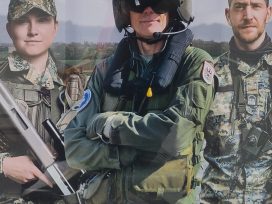
Talk of demilitarization and mobilization divides opinion. Could giving women and other feminized groups more agency in wartime decision-making flip their traditionally passive role, providing relief from trauma and injustice?

From Bosnia to Afghanistan, the neoliberal peace-building model has compounded conflicts and inequalities by eroding the core function of states. But in Ukraine, the co-optation of the recovery process by private economic interests is being taken to a whole new level.
